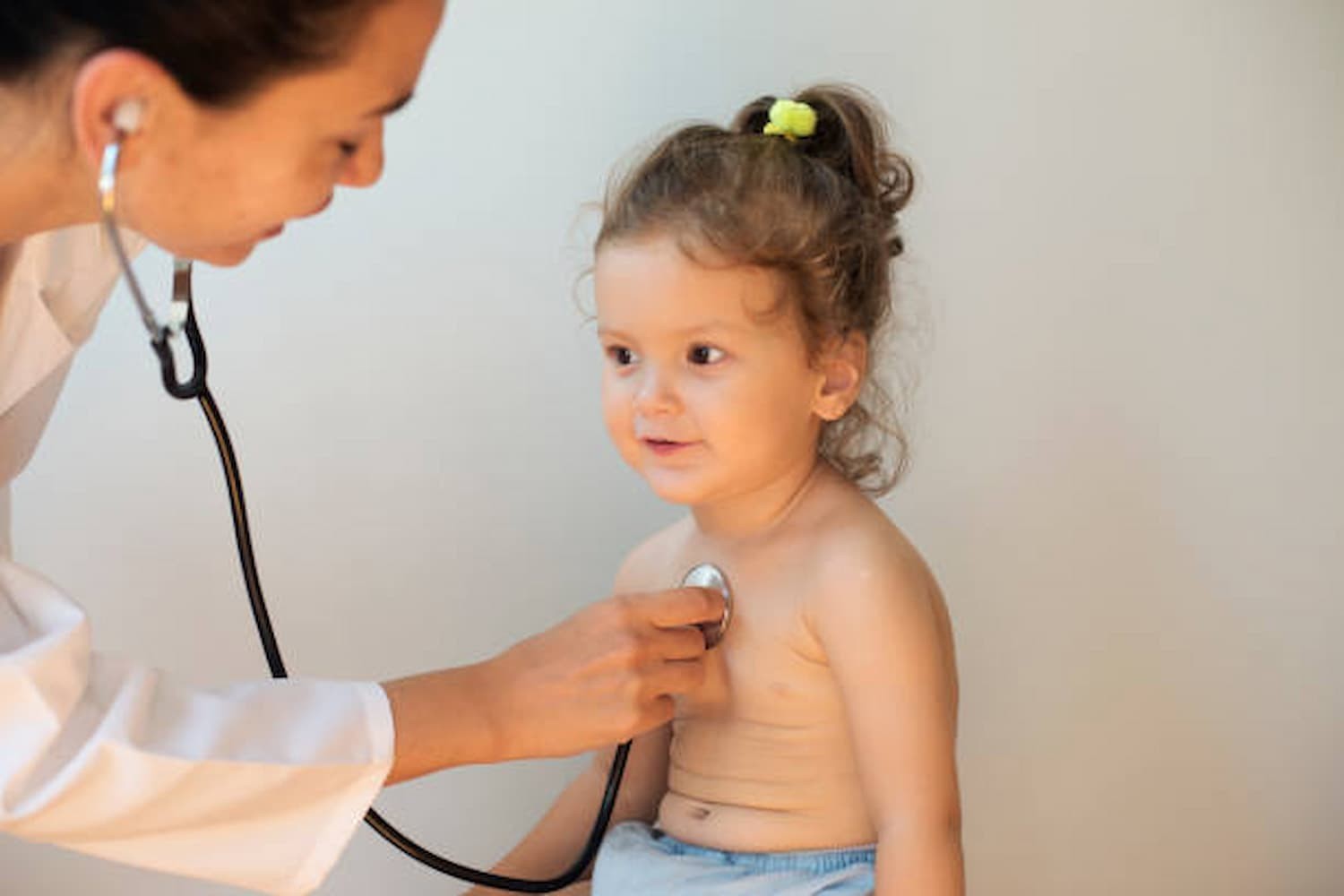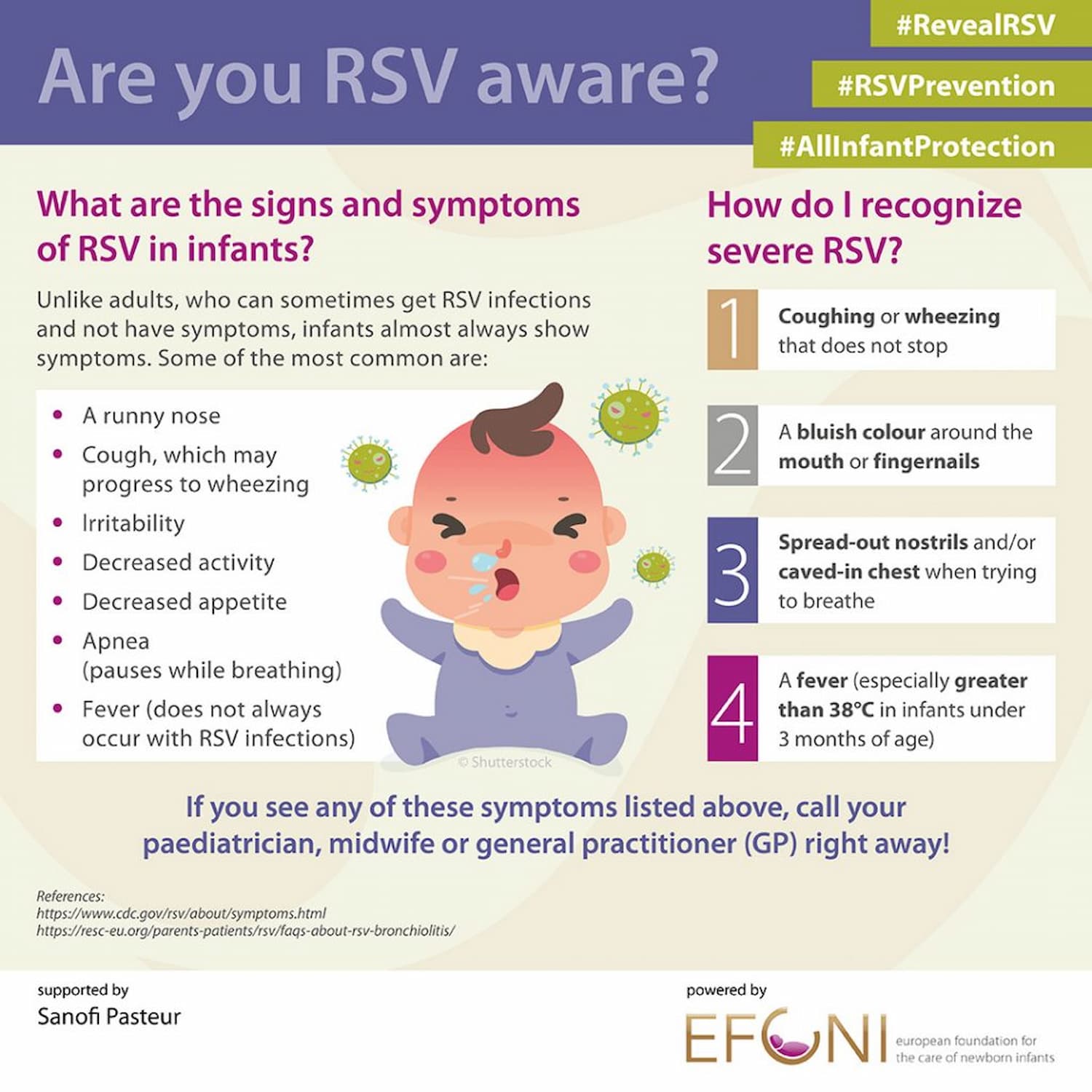
Bronchiolitis is a viral infection of the bronchioles, the smallest airways in the lungs. It causes the bronchioles to become inflamed and filled with mucus, leading to breathing difficulties. Bronchiolitis is a common respiratory tract infection in young children, and it is usually caused by the respiratory syncytial virus (RSV).
Although it's often confused with bronchitis, an inflammation of the bronchial tubes that carry oxygen to the lungs, because the symptoms are similar, bronchiolitis affects a different area of the lungs than bronchitis.
What are the Symptoms of Bronchiolitis?
The telltale signs of bronchiolitis vary from person to person, ranging from a mild cough to respiratory failure in severe cases. The common symptoms, though, include the following, starting from mild to severe symptoms:
- Runny nose
- Slight fever
- Wheezing or noisy breathing
- Persistent cough
- Rapid breathing
- Difficulty sleeping
Additional symptoms of severe bronchiolitis include lethargy, a change in appetite, insufficient fluid intake, low oxygen levels, and bluish skin, lips and fingernails. Complications from bronchiolitis include pneumonia or other respiratory infections, respiratory failure, or worse, death. Children with bronchiolitis need to receive the appropriate treatment immediately before their condition worsens.

Source: EFCNI
What Causes Bronchiolitis?
This lung condition is typically caused by bronchiolitis viruses, specifically RSV, which affects children below 24 months of age. Other viruses that can cause bronchiolitis include rhinovirus, human metapneumovirus and adenovirus. Bronchiolitis viruses are easily transmitted. You can get them from droplets in the air when someone is sick coughs, sneezes or speaks. You can also get them by touching infected objects and then touching your eyes, nose or mouth.
Although age is the most important risk factor for bronchiolitis, some children with bronchiolitis were born with certain conditions, particularly congenital heart disease and chronic lung disease. Because of their weakened immune systems, premature babies are also more highly susceptible to bronchiolitis. This condition has previously afflicted the majority of children with asthma.
Infection is also common in infants exposed to cigarette smoke or other environmental irritants. Furthermore, studies show that infants who have never been breastfed are more likely to develop bronchiolitis than breastfed babies.
How is Bronchiolitis Diagnosed?
Bronchiolitis is usually diagnosed based on symptoms and a physical examination. Mild bronchiolitis symptoms usually do not require a battery of tests. The doctor can easily tell what is wrong by listening to the child's lungs with a stethoscope and then prescribe the most suitable hospital treatment.
In some cases, a chest X-ray may be ordered to look for signs of pneumonia. A bronchoscopy may also be performed to rule out other causes of respiratory distress.
What are the Treatment Options for Bronchiolitis?
The treatment for bronchiolitis will depend on the results of a child's diagnostic tests. While there is no specific cure for this condition, a conventional treatment program focuses on relieving symptoms and supporting the body's respiratory system. In most cases, bronchiolitis can be treated at home with rest, plenty of fluids and humidified air.
If your child is having difficulty breathing, they may need hospital care for supplemental oxygen, bronchodilators to help open the airways, and IV fluids.
What Natural Treatments are Available for Bronchiolitis?
The goal of treatment for bronchiolitis is to relieve symptoms and help your child breathe more easily. Treatment typically involves supportive care, such as fluids, rest and pain relief. There is no cure for bronchiolitis, but these seven natural remedies may help to speed recovery:
1. Drink plenty of fluids
Consuming lots of fluids help to thin mucus and make it easier to cough up. Staying hydrated also prevents dehydration, which can make bronchiolitis symptoms worse. Aim to drink eight to twelve glasses of water or other clear, unadulterated fluids every day, such as water, broth and herbal tea.
2. Use a humidifier
Humidifiers are often recommended as a home treatment for bronchiolitis. The moist air can help to thin out mucus and make it easier to cough up. It can also help to soothe irritated airways and reduce coughing. In addition, humidifiers add moisture to the air, which can help to prevent the spread of viruses that cause bronchiolitis.
3. Take a bath with warm water
Hot baths can help to loosen mucus, reduce inflammation and ease coughing and wheezing. If your child is having difficulty breathing, make sure to closely monitor them while they are in the bath. Add a cup of Epsom salt to the bathtub to further reduce inflammation.
4. Drink warm liquids
Taking warm water, tea or soup helps to prevent bronchospasm, a condition in which the muscles surrounding the bronchioles tighten, making it difficult for air to flow through them. Warm water can help relax the bronchial muscles, thus easing breathing difficulties, wheezing and coughing.
5. Take honey
Honey has been found to be a helpful remedy for bronchiolitis. In one study, honey was found to be more effective in treating bronchiolitis than the standard medical treatment at the time. Honey has anti-inflammatory and antibacterial properties that make it helpful in treating bronchiolitis. It also helps to soothe the throat and relieve coughing. You can take honey by itself or add it to tea or other hot beverages. You can also find honey lozenges at most health food stores.
6. Drink peppermint tea
Peppermint tea is a popular herbal remedy that has long been used to treat bronchiolitis and other respiratory conditions. The menthol in peppermint is thought to help relax the bronchial muscles, making it easier to breathe. Peppermint tea can also help thin mucus and reduce congestion.
7. Do the Buteyko breathing technique
The Buteyko breathing technique is a complementary therapy that can help to ease the symptoms of bronchiolitis. It involves taking slow, shallow breaths through the nose while keeping the mouth closed. This helps to reduce the amount of air that enters the lungs as well as preventing bronchial constriction. The Buteyko breathing technique has been shown to be effective in reducing the symptoms of bronchiolitis in children and may help to prevent complications such as pneumonia. If you or your child has bronchiolitis, talk to your doctor about whether the Buteyko breathing technique may be helpful.
Is it Possible to Prevent Bronchiolitis?
While there is no specific cure for bronchiolitis, there are many ways to prevent it. Because this viral infection affects infants and children under the age of two, it is important to practise proper hygiene at home and in public places. Here are some tips to consider:
- Wash your hands often to prevent the spread of viruses
- Avoid close contact with sick people. If you are near someone who is ill, keep a six-foot distance between you and them.
- Clean and disinfect surfaces to shorten the life of viruses that have landed on them.
- Avoid sharing cups and utensils as this can lead to the spread of viruses.
- Maintain a strong immune system by eating a healthy diet, getting enough sleep and reducing stress.
Is your child at risk of developing bronchiolitis? Contact a natural therapist in your area to ensure he or she receives proper treatment before symptoms worsen. With proper treatment, most patients with bronchiolitis recover completely.









